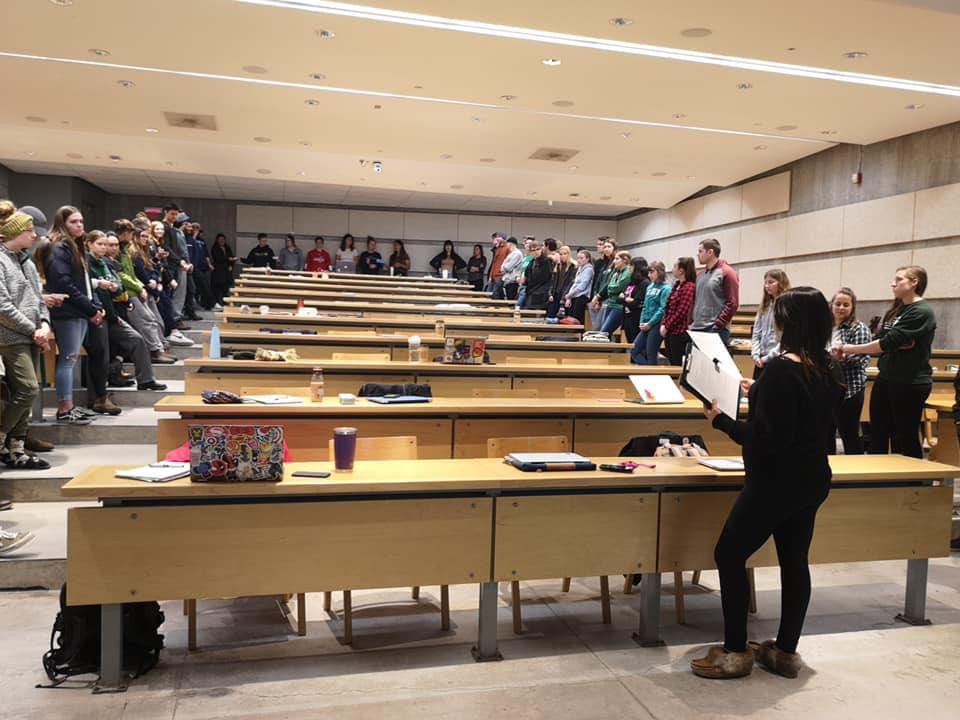Background
As recipients of the inaugural Wickerson Foundation Fund Grant (WFG), we engaged in a project to redesign a first-year course in the Indigenous Environmental Studies and Sciences program titled, “Creating and Implementing Inclusive, Relevant and Transformative Learning in Foundations for Indigenous Environmental Studies and Sciences, IESS 1001H (ICR).” In 2019, Wall was the course instructor and Shawanda was the lead Graduate Teaching Assistant (GTA), later becoming the course co-instructor. Wall has continued as the course instructor, although delivery of IESS 1001H has moved to a co-instructor model following the course redesign. This case study narrative provides updates and Wall’s insights from the past four years of delivering this first–year Indigenous Environmental Studies and Sciences course.

IESS 1001H is one of 46 courses that meet Trent University’s Indigenous Course Requirement (ICR). The ICR began in the fall term of 2018 and requires every undergraduate student at the university to complete one half–year ICR course. The ICR designation creates challenges in the delivery of course content because of the diversity of students’ academic disciplines as well as high enrolment. IESS 1001H is the recommended ICR for environmental and life science students, physical science students, nursing students, and forensic students. The goals of our 2019 Wickerson Foundation Fund project were to redesign IESS 1001H using Universal Design for Learning (UDL) and active learning concepts as well as Indigenous pedagogies; implement the redesigned course in Fall 2019 and Winter 2020; and assess and analyse the impacts on learning and instruction. As Anishinaabe scholars, we believe that authenticity, transparency, and teaching from our lived experiences is essential in creating a relationship-based learning and teaching environment.
The instructional challenges we initially identified include:
- Infusing Indigenous Knowledge (IK), worldview, history, and environmental issues within all aspects of our course.
- Effectively delivering foundational approaches, despite most of our students majoring in other disciplines.
- Creating a relationship-based, collaborative, and safer learning community in a high enrolment course that includes a supportive space for students to engage with and explore IK and discuss Indigenous worldviews and environmental philosophies.
- Working together with a diverse team of seminar leaders to assist on non-IESS students to make meaning of and find relevance in the course content.
- Holding space for Indigenous students in a course where beliefs and ways of knowing and living are continually spotlighted and questioned.
It’s important to note that challenges related to diversity of student disciplines and high enrolment have continued with the current offerings of this course. However, as expertise of the instructional team develops and secondary school curriculum further embraces reconciliation, the intensity of these challenges should lessen. The success of the course redesign inspires continual revisions and updates after each offering.

